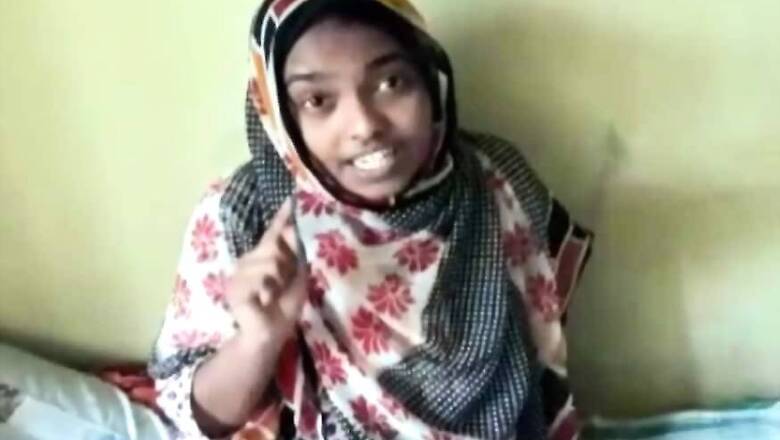
views
New Delhi: The Supreme Court on Monday ordered Hadiya, the 24-year-old woman at the centre of the Kerala Love Jihad controversy, to be produced before it on November 27, saying it would examine her to ascertain whether she had consented to marry petitioner Shafeen Jahan.
The top court said it would examine Hadiya in an open court hearing, turning down her father’s plea for in-camera proceedings.
A bench, comprising Chief Justice Dipak Misra and Justices AM Khanwilkar and DY Chandrachud, asked senior advocate Shyam Divan, representing the father of the woman, to ensure that she is produced that day for interaction with the bench, which is likely to ascertain her mental stage and whether she had given free consent to the marriage.
“Marriage is a personal affair. Individual choices should not be curbed. We’ll have to verify if Hadiya can give free consent,” the court observed.
The National Investigation Agency, represented by Additional Solicitor General Maninder Singh, said there was a well-oiled machinery working in the state and they are indulging in the indoctrination and radicalisation of the society in the state where as many as 89 cases of similar nature have been reported.
Divan, appearing for woman's father KM Ashokan, claimed the alleged husband of his daughter is a radicalised man and several organisations like Popular Front of India (PFI) are involved in radicalisation of the society.
Senior advocate Kapil Sibal, appearing for her husband Shafin Jahan, opposed the NIA's submission and that of the woman's father.
The Supreme Court was hearing a petition filed by Hadiya’s husband Shafeen Jahan against a Kerala High Court order declaring their December 2016 marriage “null and void". The HC had also ordered Hadiya, known as Akhila before conversion, to be placed in her parents' protective custody.
Jahan had moved the top court against the High Court order, contending the ruling was an "insult to the independence of women in India".
Jahan claimed Hadiya, a homeopathy student in Kerala, converted to Islam of her own volition two years prior to their marriage and sought direction to Hadiya's father to present her in court.
Hadiya's father, however, said she was a "helpless victim" and trapped by a "well-oiled racket" which used "psychological measures" to indoctrinate people and convert them to Islam.
The father had claimed his daughter had been radicalised by some organisations and they had influenced her to marry a Muslim man, adding that there could be a conspiracy to send her to Syria to work for extremist organisations such as the Islamic State since the man she married had been working in the Gulf.
(With agency inputs)


















Comments
0 comment